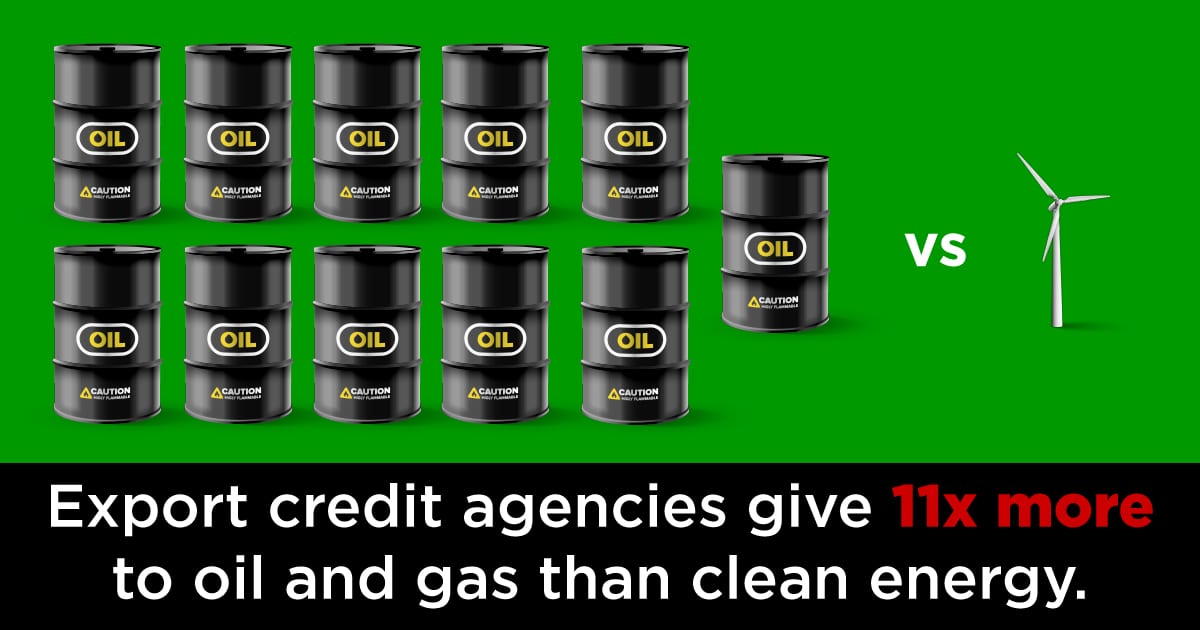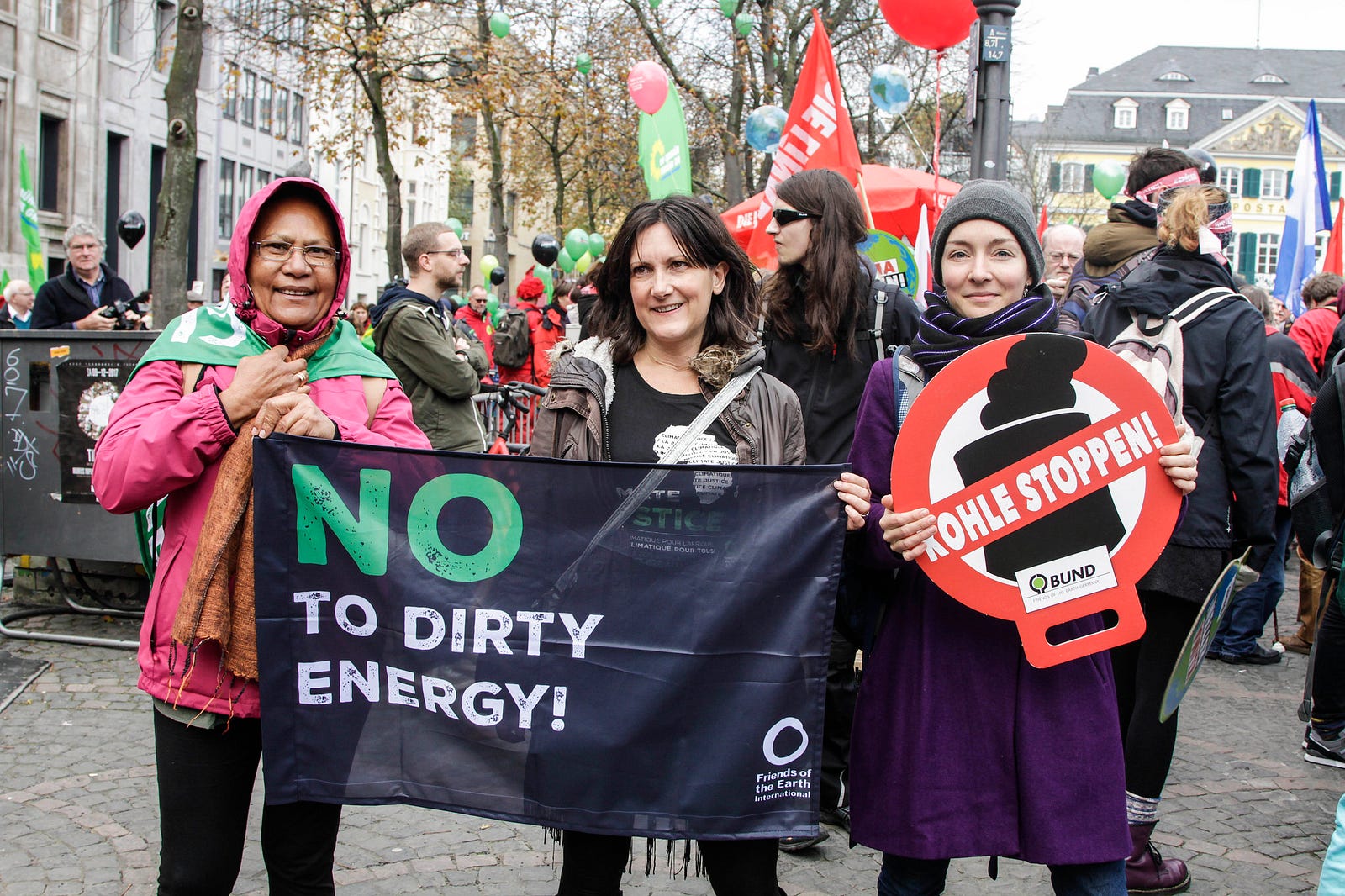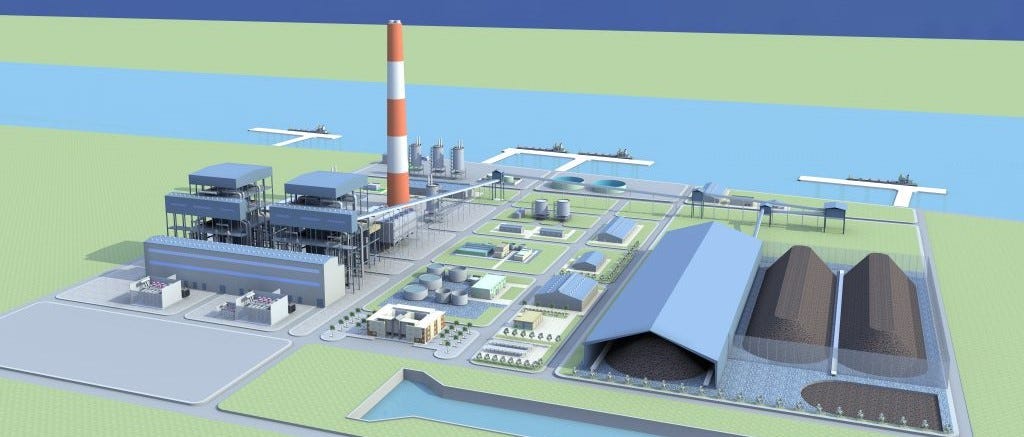- Blog
- Sustainable Economic Systems
- International Sustainable Finance
- OECD, It’s Time for Export Credit Agencies to Stop Funding Fossil Fuels
OECD, It’s Time for Export Credit Agencies to Stop Funding Fossil Fuels

Donate Now!
Your contribution will benefit Friends of the Earth.
Stay Informed
Thanks for your interest in Friends of the Earth. You can find information about us and get in touch the following ways:
Precisely as the world’s attention is focused on addressing climate devastation at the 23rd United Nations Climate Conference (COP23) in Bonn, Germany, the largest public drivers of fossil fuel financing are meeting a mere 320 miles away in Paris. The irony couldn’t be starker. Representatives of the very same countries singing their own praises in Bonn are fomenting climate disaster from Paris, at a meeting of export credit agencies (ECAs) at the Organization of Cooperation and Development (OECD) Export Credit Group.
Export credit agencies have a multi-billion dollar addiction to fossil fuels
Export credit agencies (ECAs) — which are bodies funded by taxpayers to support business overseas — are world leaders in public support for climate destruction. While relatively obscure but powerful institutions, ECAs provide government-backed loans, guarantees, insurance, and credits to projects overseas — including many energy projects — in the hopes of boosting their home countries’ exports and creating and maintaining jobs. According to a recent report by Friends of the Earth U.S. and Oil Change International, ECAs fund almost $40 billion worth of fossil fuel projects each year. That is a whopping 12 times more than what they spend on clean energy projects. The worst offender is Japan, providing $13 billion per year to fossil fuels. ECAs provide significantly more support to fossil fuels and substantially less support to renewables than either major development finance institutions or multilateral development banks.

Moreover, ECAs seem set on ensuring that fossil fuels remain the dominant source of energy for decades to come. Case in point, 23 percent of their oil and gas financing over 2013–5 went toward exploration of new oil and gas resources. Yet the potential carbon emissions from oil, gas, and coal in the world’s currently operating fields and mines would take us beyond levels of warming that scientists have determined to be safe.
ECA financing does not match domestic fossil fuel restrictions
Many countries have declared that they will be phasing out domestic use of coal-fired power plants, and this list is growing — Austria, Canada, Finland, France, Germany, Italy, Netherlands, South Korea, and the United Kingdom. While recognizing that fossil fuels pollute local air and water and contribute to climate change in their own countries, these and other OECD countries seem to disregard the impact of their fossil fuel projects abroad.
Take the Long Phu 1 coal plant that ECAs are considering in Vietnam. This coal plant would produce at least 6.3 million tonnes of carbon dioxide each year. Even though Jim Kim, the head of the World Bank, has called the coal plans in Vietnam and the region a “disaster for the planet,” multiple OECD ECAs are considering supporting Long Phu 1.

Other institutions are restricting oil and gas financing; ECAs should too
While OECD ECAs do have limited restrictions on the financing of coal plants, they still allow the financing of certain coal plants, related coal infrastructure (like coal mining equipment and rail cars to transport coal), and all oil and gas projects. Meanwhile, other financial institutions, even private ones, are stepping up and curbing their support for fossil fuels. BNP Paribas recently announced that it was restricting financing for oil and gas projects from shale and/or oil from tar sands as well as exploration and production projects in the Arctic. The African Development Bank and the Asian Development Bank no longer finance oil and gas exploration projects, and the Big Shift Global campaign is calling on all development banks to stop funding fossil fuels. Even one of their own — the Swedish ECA, Sweden SEK — aims to restrict its fossil fuel support by joining Sweden’s Fossil Free initiative.
These government-led bodies must recognize that the restrictions they have put in place on coal are not enough to align their financing with the goal of preventing the devastating impacts of climate change. In fact, ECA fossil fuel financing threatens the very integrity of the Paris Agreement. Providing tens of billions of dollars every year to new fossil fuel projects, including the exploration and production of new fossil fuels, will catapult the world’s global warming past the 2 degree Celsius ceiling of the Paris Agreement. As they gather in the shadow of the UN Climate Conference, ECAs must cease business as usual and finally move in a new and more sustainable direction by ending all support of fossil fuels by 2020 at the latest.
Post by Kate DeAngelis, international policy analyst
